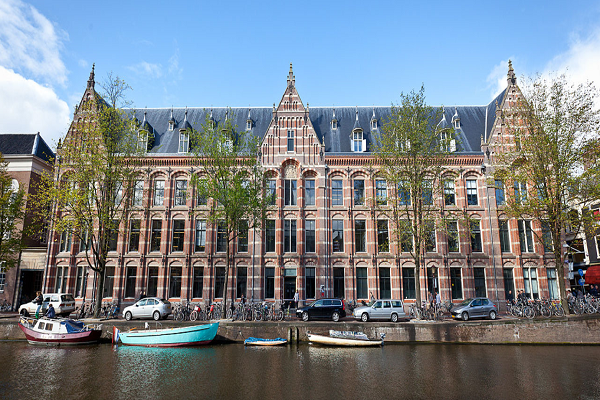University of Amsterdam: Successful STiCS Dragon’s Den
Interdisciplinary scientists of mind and brain
As our world becomes more integrated, it becomes essential that future generations of scientists and scholars have experience in interdisciplinary research, critical and creative thinking, and communication of scientific ideas to the public and various stakeholders. Throughout the STiCS course, students with different disciplinary backgrounds learn to work together to practice interdisciplinary collaboration in a more organic and sophisticated manner.
Over the first term, students break down their wicked problem according to the Design Thinking method: they do research from multiple disciplines, identify stakeholders and, ultimately, set up an interdisciplinary framework for their research question.
Over six days in January, students then brainstorm and refine interdisciplinary interventions for their real-life issues. This Pressure Cooker format ends with a Dragon’s Den, in which students have five minutes to “pitch” their interventions to a panel of experts, in the hopes they will be convincing enough to earn their approval. They set out to integrate knowledge from several fields to answer a research question and learn to communicate clearly about their research, both across disciplines and towards society.
Sebastian Balart-Sanchez, one of the STiCS teachers, explains: “We have typically learned under unrealistic linear and action-reaction examples for the sake of clarity. However, It is rarely the case that a problem will be isolated from other factors such as attitudes and behaviours towards climate change. That is why it is essential for students to think critically and plurally from the beginning of their Master’s, if they want to challenge today’s wicked problems.”
Skyla HerodCopyright: Skyla Herod
The STiCS course provides a unique opportunity to mentor students in real-world, practical aspects of interdisciplinary research.
Skyla Herod, Ph.D., STiCS teacher & course coordinator
This year, twelve groups of students presented their ideas for interventions to the “Dragons” in attendence: Harm Krugers, Director of MBCS; Lucy Wenting, Director of the Institute for Interdisciplinary Studies (IIS); Vincent Tijms, Programme Coordinator MBCS; and Paul Mertens, MBCS alumnus.
Lucy, one of the students from the winning project team: “It was great to receive a positive reaction for our idea and to see positive engagement regarding climate change. Since our concept revolves around public engagement, receiving public approval felt like a big step.”
Sebastian Balart-Sanchez concludes: “I am very proud of our students. They showed their progress in integrating the complexity of societal questions within an interdisciplinary solution, such as digital transhumanism and consciousness.”

